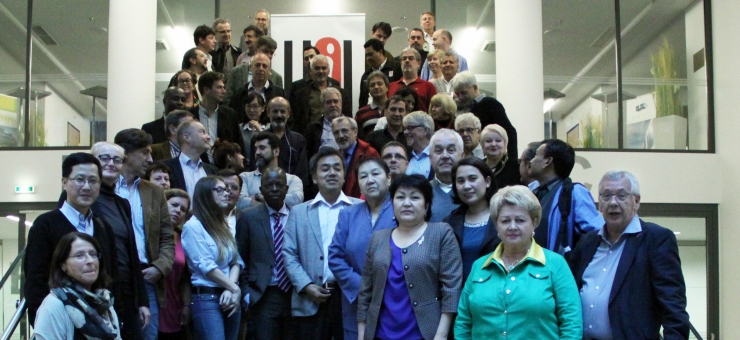News
Trade unions worldwide call for Independent and High Quality Public Service Broadcasting

“Any attack on Public Service Broadcasting is an attack on democracy,” stated Gerry Morrissey, UNI MEI President, at the UNI MEI World Conference on Public Service Broadcasting in Vienna. The conference gathered trade union leaders from across the world representing media workers in 140 unions and guilds and 70 countries. Unions agreed unanimously that conditions for a functioning democratic and independent Public Service Broadcasting have deteriorated worldwide: policies liberalising public service broadcasting, excessive commercialisation and cutting of public funding are some of the most common attacks against independent public service broadcasting around the world. Unions called for economic and political independence for public service broadcasting, for sustainable and predictable funding, as well as for accountable governance and management of public service broadcasters. “Broadcasting councils and management of public broadcasters have to be independent. Effective regulation needs to be in place at regional, national and international level to protect public broadcasters against undue influence by governments, political parties or economic stakeholders who wish to control and silence Public Service Broadcasting as an independent and critical voice in democratic societies”, declared Gerry Morrissey.
“Regardless of the different democratic funding models for Public Service Broadcasting which exist worldwide, the financing of Public Service Broadcasting needs to safeguard the ability of public broadcasters to adapt and develop programming and services to technological, economic and structural changes in the global digital economy”.
Unions in many countries also observed a slow ramping “deconstructing” in small steps of media freedom and media pluralism and called upon trade unions, civil society and citizens in all countries to watch out carefully any threats to public service broadcasting. Many participants underlined the need to defend media pluralism and promote cultural diversity and high quality programming. Participants also emphasized that a sustainable Public Service Broadcasting with high quality services depends on a skilled workforce benefitting from good working conditions, investment into skills and access to lifelong learning schemes, and effective social dialogue. The conference concluded with the adoption of a Manifesto on independent and high quality public service broadcasting addressed to governments, regional authorities, management of public broadcasters, and the public. The manifesto sets out key principles for independent public service broadcasting as a key instrument to safeguard freedom of speech, freedom of information, and a democratic functioning society.
The Manifesto underlines the leading role public broadcasters play in contributing to media pluralism by providing high quality, impartial and independent news and information and a diversity of programming. To play that role, high quality Public Service Broadcasting needs to be universal and to reach out to all groups of societies and minorities with diverse content, fostering the expression of cultural diversity.

